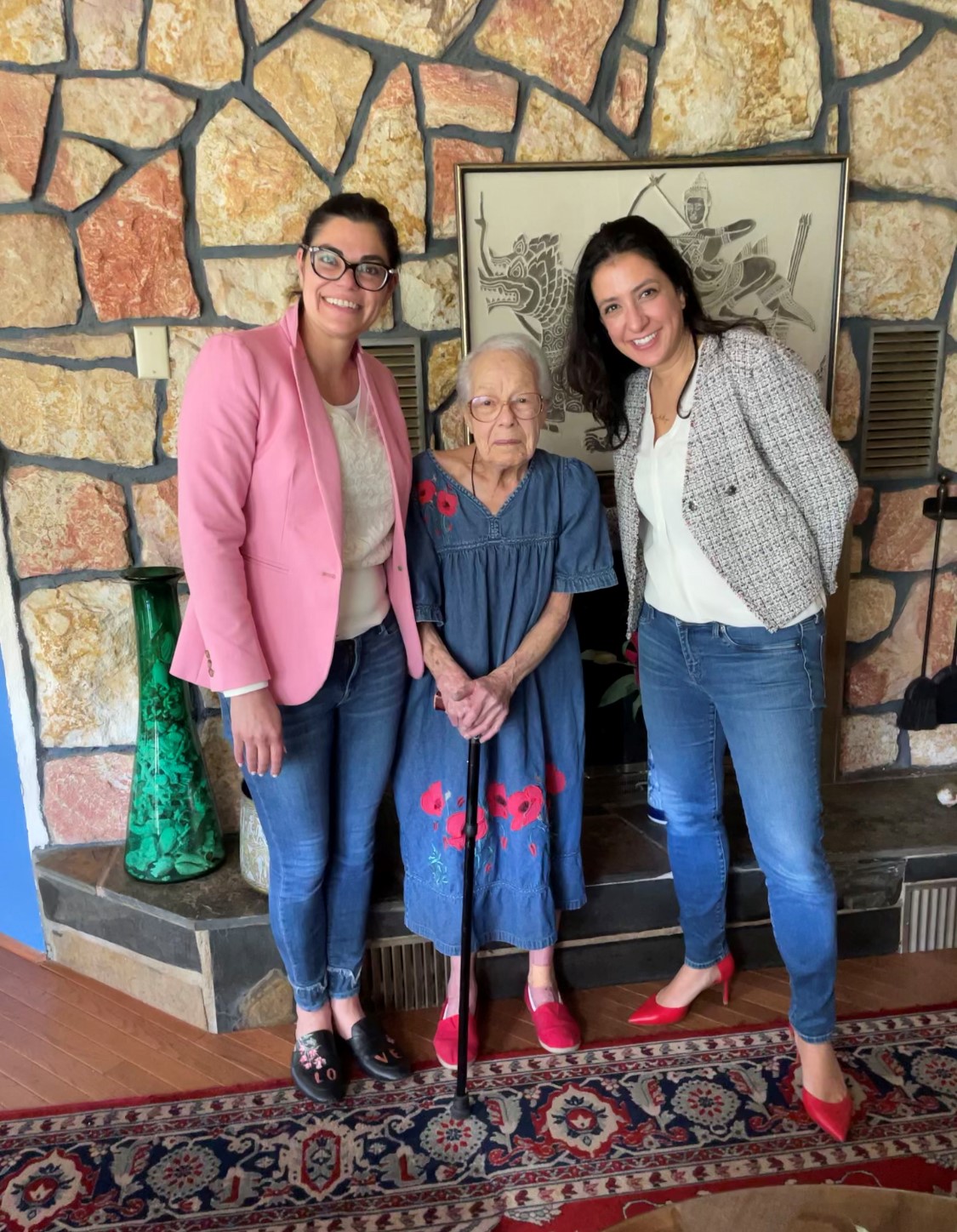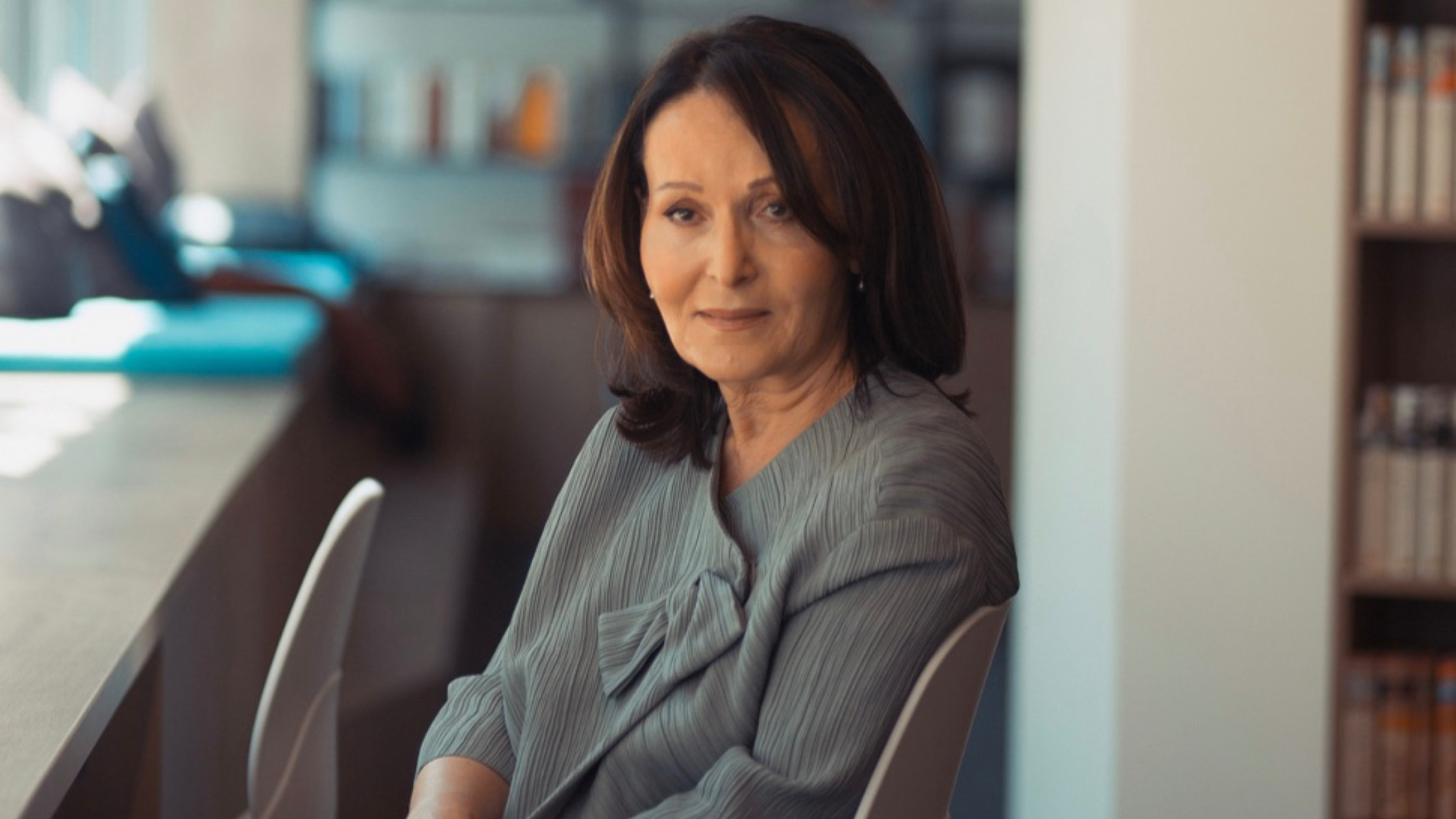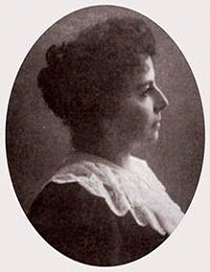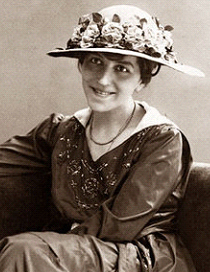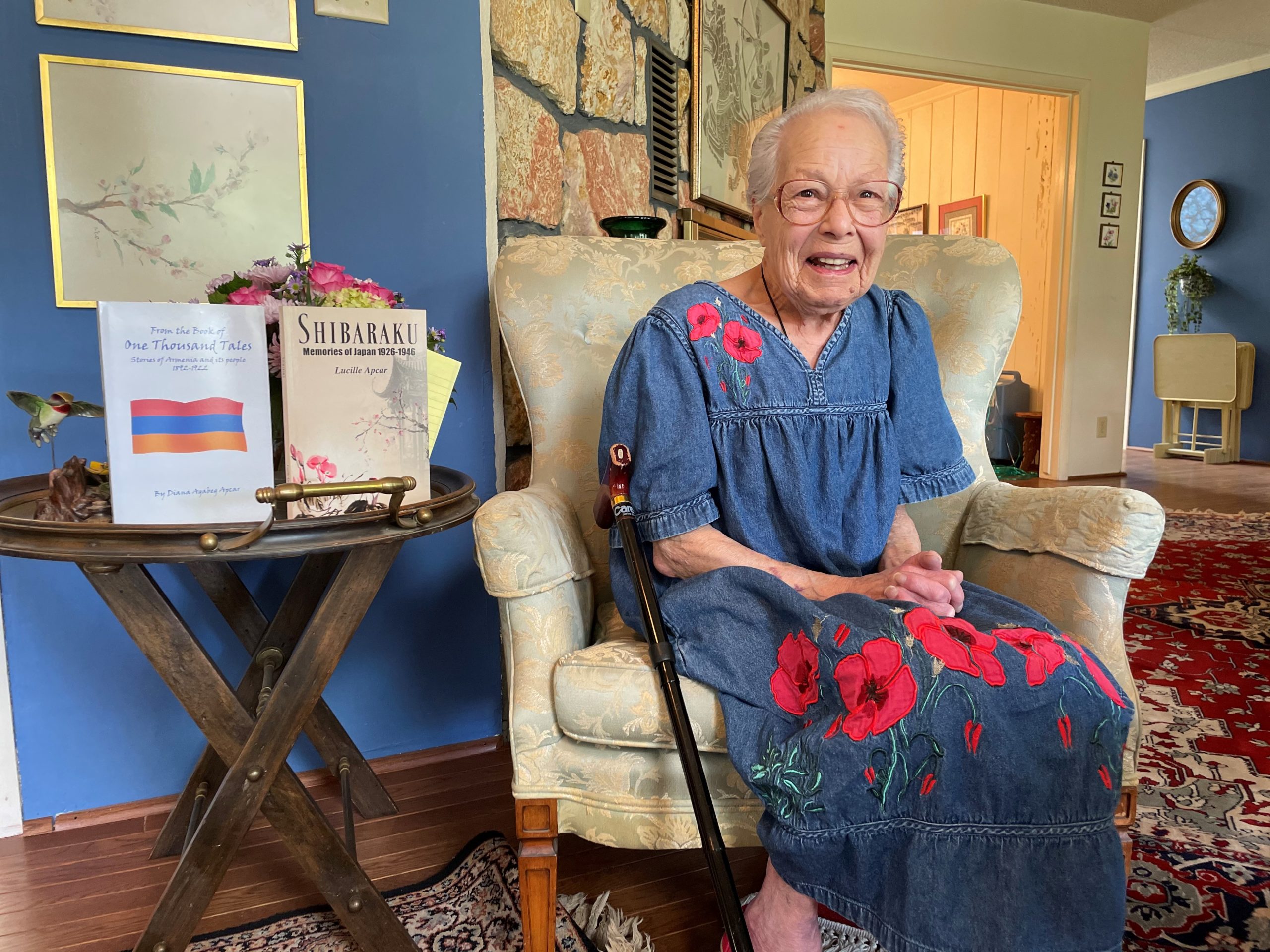
Lucille Apcar, author, businesswoman, and granddaughter of famed diplomat and humanitarian Diana Agabeg Apcar, passed away peacefully recently at the age of 95 at her home in Mariposa, Calif. She was a longtime AIWA member.
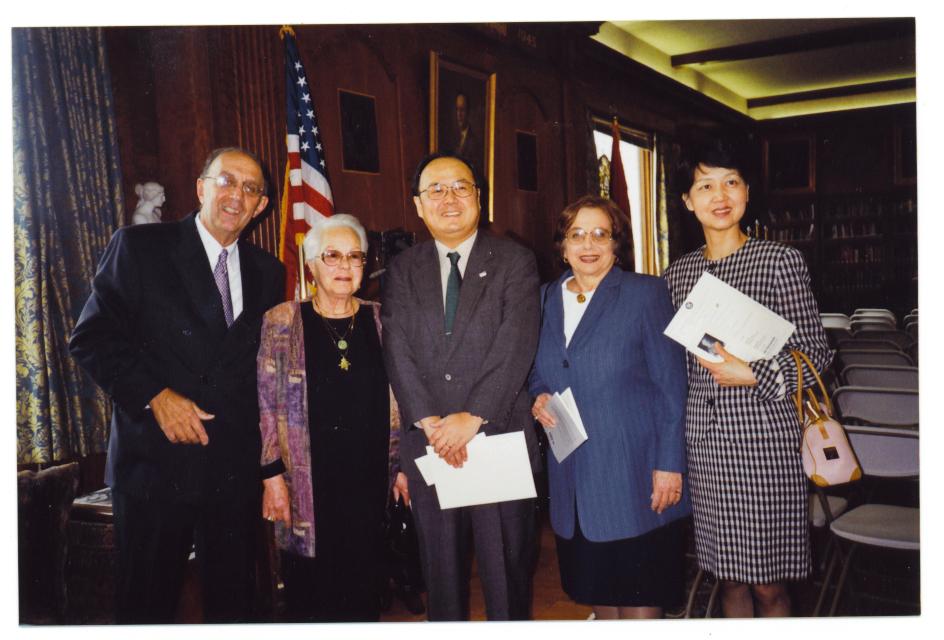
Lucille was born in Yokohama, Japan, in 1925, the daughter of Diana Apcar’s only son, Michael, and Araxe Saunders (originally Santikian), an Armenian-American born in Waltham, Mass.
In her memoir Shibaraku: Memories of Japan 1926-1946, Lucille described her extraordinary early years spent in the large comfortable Victorian Apcar family home located in “The Bluff,” a semi-isolated section of Yokohama overlooking the harbor and populated largely by “westerners.” Grandmother Diane Apcar and Aunty Ruth occupied an upper floor, and the house had several large rooms able to accommodate the extended family, along with three maids and a cook with his wife and daughter. A steady stream of visitors passed through the house, engaged in meetings and conversations about current topics of interest.
Lucille was educated at a local Roman Catholic School, went to camp in the hot summers, and was exposed to many cultures both at home and in the city. By the time she was born, her grandmother had aged considerably and suffered from several physical ailments, though her mind remained clear until her death, which took place in 1937. Little of her past life and activities were discussed at home, and it was only years after her grandmother’s death that Lucille learned of the family history and of the extent of Diane Apcar’s extensive humanitarian and political activities on behalf of the Armenian people.
Lucille’s grandparents belonged to prominent Armenian trading families in Southeast Asia and were married in 1789 in Rangoon, Burma (present-day Myanmar). Soon after they moved to Yokohama, Japan, where they established a successful export-import business, Apcar M. Apcar & Co. Apcar died 17 years later, leaving Diane to run the business while bringing up their five children.
With the outbreak of World War, with its tremendous human toil, thousands of refugees (including a large number of Armenian Genocide survivors) fled via the Trans-Siberian Railroad to Japan. Diana Apcar headed a tremendous relief effort, providing food, clothing and shelter as well as arranging passage abroad, often to the United States, for countless Armenians. At the same time she mounted a far-flung publicity campaign, writing books and articles about the Armenian Genocide and addressing letters to newspapers and prominent world leaders urging political, social, and economic aid to Armenia and the Armenians. In recognition of her efforts she was named Honorary Consul by the Republic of Armenia, becoming one of the first women to hold a diplomatic post.
Lucille’s comfortable life was interrupted in the mid-1930s following economic difficulties in Japan and decline in the family business, now run by her father Michael. Relatives in the United States urged the family to emigrate to the United States, but Lucille’s father Michael paid no heed. Conditions rapidly deteriorated with the Japanese attack on Pearl Harbor and the outbreak of World War II. All foreigners were now placed under suspicion. Michael Apcar was arrested and imprisoned for 14 months, and the family was relocated to a small remote village in the mountains.
Over the next two years, along with a motley colony of westerners from almost every type of background, the Apcars lived under increasingly difficult conditions, suffering from lack of fuel and shortages of food and clothing. Only with the end of the war and the American occupation were they able to return to Yokohama, now ruined by the dislocation of war and American bombing. The family home and business had been totally destroyed. Lucille worked for a while with the International Red Cross, and in the fall of 1946 the entire family was able to relocated to San Francisco and begin a new life.
Lucille found work in the United States as a tour guide, mostly to the Far East. In 1955 she founded Astra Travel Inc. in Menlo Park, California, and operated it for 30 years. In 1989 she retired to Mariposa, California, where she lived a full life, volunteering for the Mariposa Museum and History Center, joining the Democratic Club and the Garden Club, and introducing the Chinese Mah Jongg at the Senior Center.l
In addition to her memoir, she also completed and published in 1904 one of her grandmother’s unfinished books, From the Book of One Thousand Tales—Stories of Armenia and Its People, 1892-1922.
